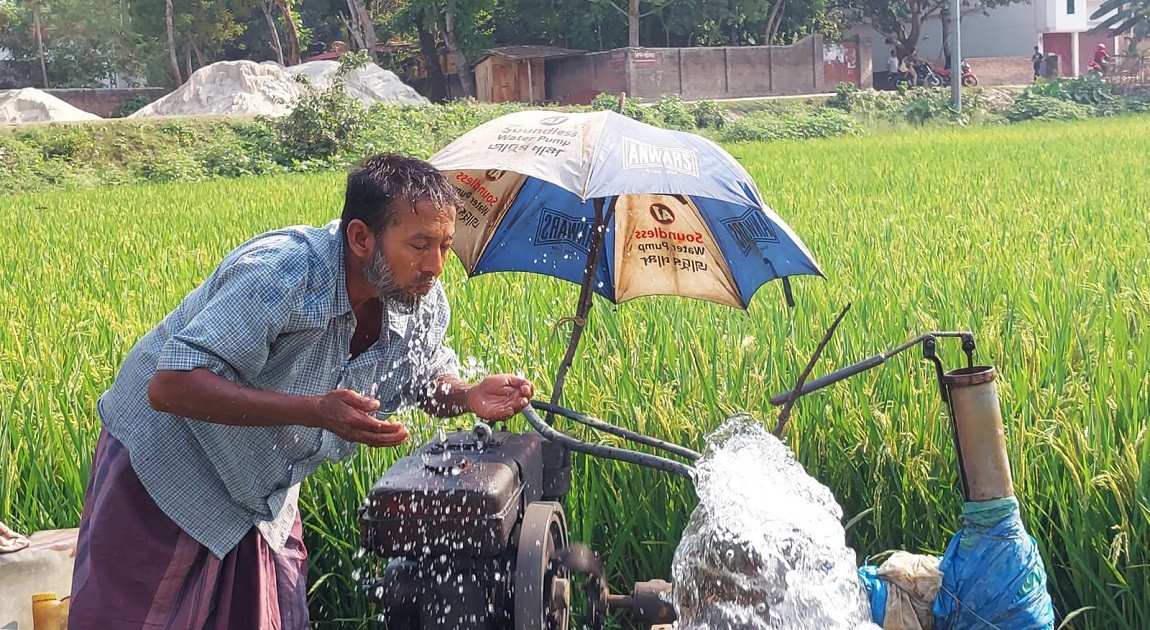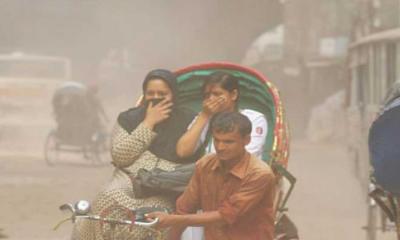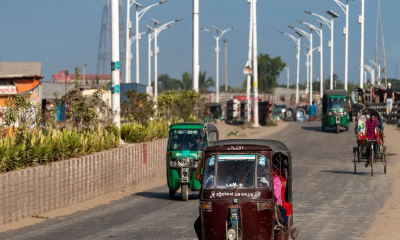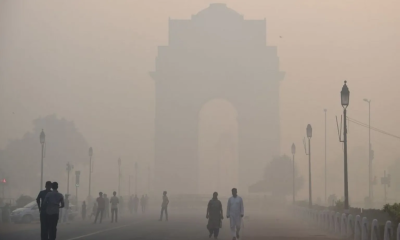Bangladesh is rapidly emerging as one of the world’s most climate-vulnerable “heat hotspots,” ranking second globally for the rate of temperature rise, according to a new World Bank report.
The findings were revealed Tuesday at the launch of the study “Impact of Heat on Health and Economy in Bangladesh” held at Pan Pacific Sonargaon Hotel in Dhaka.
Environment, Forest and Climate Change Ministry Adviser Syeda Rizwana Hasan attended the event as chief guest, while the Chief Adviser’s Special Assistant Prof Dr Syedur Rahman was present as special guest.
World Bank Senior Operations Officer Iffat Mahmud and Senior Health Specialist Wamek A. Raja presented the keynote papers.
The report shows that between 1980 and 2023, Bangladesh’s maximum temperature rose by 1.1°C, while the “felt temperature” increased by 4.5°C. Dhaka experienced the sharpest rise — 1.4°C — surpassing the national average. According to the World Meteorological Organization, 2015–2023 were the nine hottest years on record globally. Experts blamed unplanned urbanization, deforestation and concrete-heavy development for intensifying heat stress.
Health Risks Rising with the Heat
The World Bank’s 2024 survey revealed a steep rise in both physical and mental health issues during heatwaves. Chronic cough prevalence rises from 3.3% in winter to 6% in summer, while temperatures above 30°C increase risk by 22.7%. Workers and the elderly are more vulnerable to heat exhaustion above 35°C, with risk rising 26.5%. Diarrhea prevalence also climbs from 1.8% in winter to 4.4% in summer — with women and children under five most affected. At over 35°C, the risk jumps 47.7%.
Mental health issues also worsen: depression rates rise from 16.2% in winter to 20% in summer, while anxiety rises from 8.3% to 10%. At temperatures exceeding 35°C, depression increases by 23.8% and anxiety by 37.1%.
Economic Losses Mounting
Severe heat is already undermining productivity. In 2024 alone, Bangladesh lost 25 million workdays, costing between $1.33 billion and $1.78 billion — roughly 0.3–0.4% of GDP. By 2030, the loss could climb to 4.9% of GDP. Productivity among laborers drops sharply once temperatures exceed 37°C.
Five Key Recommendations
The report urges immediate action, outlining five critical steps:
Strengthen national preparedness with integrated and rapid responses to heatwaves.
Ready the health sector with specialized facilities and emergency services to handle heat-related illnesses.
Promote preventive technology — heat-resilient housing, cooling technologies, and shaded workplaces.
Improve weather data systems to provide timely warnings and planning support.
Secure international cooperation and financing, including access to global climate adaptation funds and technology.
The World Bank stresses that extreme heat is no longer just an environmental issue but a global public health crisis — and for vulnerable countries like Bangladesh, an existential threat. Urban planning, greening initiatives, stronger health systems and heat-conscious policymaking will be crucial. With political will and international support, Bangladesh could still avert the worst outcomes.








-20251226051932.jpeg)
-20251222051606.jpeg)
-20260225072312.webp)











-20260224075258.webp)













-20260219054530.webp)
-20260218060047.jpeg)
